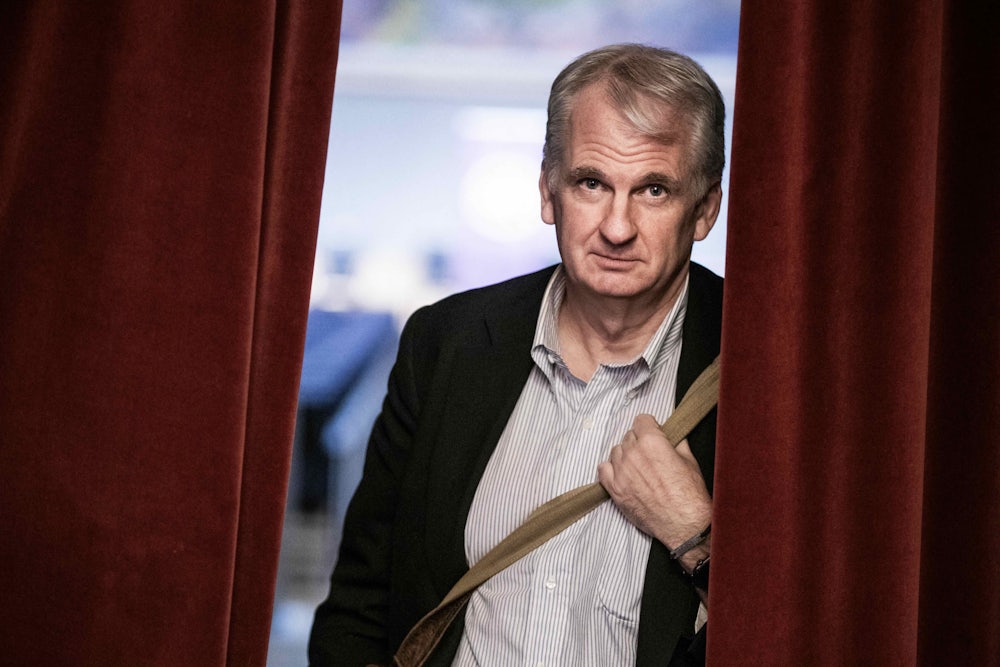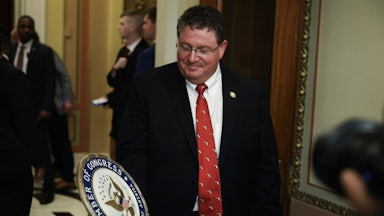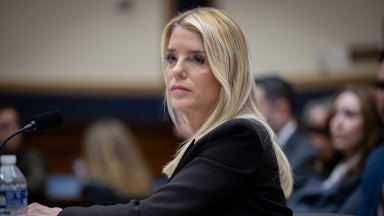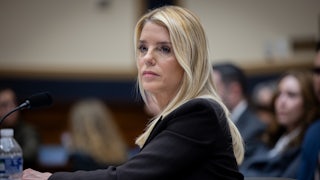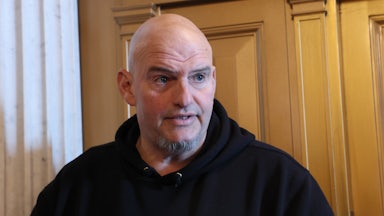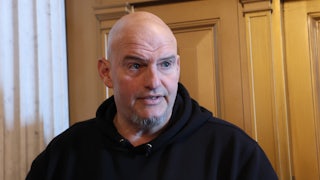When James Baldwin returned to the United States in 1957 from exile in Paris, he wished to join the growing struggle against 350 years of violent oppression with his feet on the ground, his eyes on the action, and his body in danger.
“I could, simply, no longer sit around in Paris discussing the Algerian and the Black American problem,” Baldwin wrote in an essay reflecting on his decision to return. “Everybody else was paying their dues, and it was time I went home and paid mine.” This is an expression of courageous solidarity, a commitment to stand with others at a time of great stress and opportunity.
Contrast Baldwin’s decision with that of three Yale professors to abandon the United States at one of its most vulnerable moments. Historian Marci Shore, philosopher Jason Stanley, and historian Timothy Snyder—all prominent scholars of authoritarianism—announced they will depart for the University of Toronto. They have all written important things about the global and American condition and no doubt will continue to do so. And we will all be better off for that. But they are making a clear, moral choice to exempt themselves from the consequences of their work as others choose to stay (or cannot leave for lack of resources or opportunity).
Stanley, the author of, among other important books, How Fascism Works: The Politics of Us and Them, explained that his decision to leave was “entirely because of the political climate in the United States.” Stanley was particularly motivated by the recent decision of Columbia University, threatened with losing more than $400 million in federal science funding, to bow to President Donald Trump’s demands that the university crack down on students who oppose the Israeli incursion into Gaza and that it put a department that employs scholars of the Middle East into receivership.
“When I saw Columbia completely capitulate, and I saw this vocabulary of, well, we’re going to work behind the scenes because we’re not going to get targeted—that whole way of thinking pre-supposes that some universities will get targeted, and you don’t want to be one of those universities, and that’s just a losing strategy,” Stanley told The Guardian. “You’ve got to just band together and say an attack on one university is an attack on all universities. And maybe you lose that fight, but you’re certainly going to lose this one if you give up before you fight.”
Stanley is right to demand solidarity among institutions. In the past few weeks, we have seen universities of great status and power fold to the demands of the Trump movement even before being ordered to or threatened to.
But despite the cowardice and shortsightedness of the board that governs Columbia, the university is not its leaders. Columbia University did not fail academia or the country; only its temporary leaders did. The strength of the university remains committed to resisting and doing good work for society. More than 100 faculty members and students have been protesting the university’s decision to fold, each risking admonishment or worse from the administration. Many have been writing publicly against their bosses. That is courage. That is solidarity. It’s a 90-minute train ride from New Haven to Manhattan. One would have hoped Yale professors upset with Columbia would join their colleagues on the streets of Morningside Heights rather than drive up the Queen Elizabeth Way to Toronto.
Next in the sights of the administration seems to be Johns Hopkins University, which stands to lose $800 million in health research funding for unclear reasons. I can only guess that because Johns Hopkins is Trump rival Michael Bloomberg’s alma mater and favorite beneficiary, Trump has chosen it for humiliation. It seems that Trump’s people have figured out that if they attack one institution at a time (or a few at a time), they limit the opportunity for a unified defense.
Had Columbia University leaders chosen to sue the Trump administration and take the hit to the university’s scientists (as painful as that would be to all of us who would be denied the fruits of their research on cancer and other problems), it would have set an example for other universities to hold together in protest, mount a public campaign in favor of research and education, and work through the courts while waiting for Congress to flip to the Democrats (if there will be fair elections in 2026) and stem the attacks.
We have seen a similar challenge to the country’s largest, richest, and most influential law firms, as Trump issues orders to punish firms that work against his policies by suspending security clearances for their lawyers and restricting access to government buildings, officials, and contracting work. Two major law firms so far have bowed to Trump’s extortion, and two others have sued to resist. Meanwhile, the legal profession at large remains silent and stunned by this attack on its ethics, values, and professionalism. Firms are mostly competing against one another for clients rather than seeking a way to stand for their long-term interest, let alone that of the country and the rule of law.
While solidarity is the goal, powerful institutions like universities and law firms have an easy choice to make a stand. Vulnerable individuals under threat still have a difficult choice to make: Stay or run. Let’s not presume this is a simple question, or that everyone’s situation is the same. Baldwin had no children to care for; others do. Baldwin found new perspectives on himself and his country of birth by living and traveling beyond the United States. Still, when the fight was on, he returned to fight.
For Stanley, the decision to run is personal as well as professional. He is the descendent of people who died in the Holocaust. He has spent much of the past few years teaching and lecturing in Ukraine, where he faces danger regularly. He does demonstrate personal courage consistently, even if it’s outside the range of solidarity with his fellow Americans. Through both his writing and his teaching, Stanley is someone worthy of admiration.
My choice to stay, fight, and to urge others to as well is also informed by my own experiences and conditions—and my own cowardice. In August 2017 I decided to stay home with my family as Nazis swarmed the streets of my town, Charlottesville, Virginia. I thought first of my child and how I did not want her to have to worry about my safety or risk losing me to violence. Many of my friends and neighbors made the opposite decision. They stood their ground as men with guns and clubs surrounded them and police stood back and watched. Hundreds of my neighbors needed medical attention. One of my fellow Charlottesvillians died. They were protecting my family; I was not. Nor was I protecting theirs.
Reflecting the next day on my decision, I wrote in The New York Times, “I now believe we made the wrong choice. Does my status as a parent make me special? It shouldn’t. A young man named Dre Harris was ambushed in a parking lot and took dozens of blows by club-wielding thugs. He took them so I wouldn’t have to. Next time I will stand on the street with my neighbors, even at the risk of injury or death. It’s the least I can do to repay those who stood bravely this time.”
My family chose this country in the late twentieth century, so to abandon it when it is most in need would betray my father’s dreams and hopes. We chose the United States as the site for us to live and raise children in relative freedom and security. We love this country deeply because we chose it. Now all of that is threatened, including the very citizenship we have earned. Yet there is no way I would abandon all my father strived for in his life.
I once asked my father, a professor of biophysics, why he chose the United States over the United Kingdom, Australia, Canada, or any other English-speaking country where Indians have settled. He told me the dynamism and creativity of the American spirit, largely informed by waves of immigration and energized by its commitment to science and higher education, made that choice simple.
When I consider what a writer or scholar should do in these moments, I don’t necessarily turn to Baldwin as a model any more than I reflect on Hannah Arendt’s experiences writing in the wake of the Holocaust. Baldwin’s situation in 1957 did not resemble Arendt’s in 1933, after she had been briefly jailed by the Gestapo and escaped to France to help Jewish children resettle safely in Palestine. Her second escape, in 1941, was from Paris to the United States, where she proceeded to form an intellectual network and write her most influential works, which, to this day, help people understand and resist various forms of authoritarianism and fascism.
Because the threats to the United States from Trump and his allies only echo the deep roots of the oppression of Black Americans for 400 years and the Nazi takeover of Germany in the 1930s, we should not look to them, or any particular historical figure—a Havel, a Michnik, a Sakharov, a Tagore—as a model for resistance, or for the key for whether we should run or fight. Learning from previous moments of terror and resistance can be helpful and inspirational, but the threats we face are unique in history, even if modeled on and informed by those elsewhere and from the past.
I see many more patterns that pertain to the United States in 2025 in twenty-first-century Hungary, Poland, Brazil, Argentina, India, and the Philippines. Each of these countries is, or has been recently, led by authoritarian leaders legitimately elected within increasingly illiberal democratic systems. The rise of authoritarianism in each has been a reaction to late-twentieth-century neoliberalism, the global convulsions of the 2008 economic crash, and the Covid-19 pandemic of 2020. Those who fight most effectively against oppressive parties do so from within as long as they can. They do not run preemptively. They push back with a commitment to solidarity. Poland and Brazil have in recent years seen a return (if fragile and temporary) to decent, democratic politics and the rule of law. India, it seems, could be lost for a long time.
So for writers and scholars who offer us a model for effective and inspirational resistance at this moment, may I nominate Arundhati Roy? Roy continues to stand her ground in a country that has been slipping toward fascism sooner and faster than the United States. Roy has served time in prison for her writing. She continues to face repeated legal and death threats for her commitment to a just India. Roy could live well and write freely in any country in the world. She chooses bravely to stay home and face the consequences of her moral commitments. She refuses to be silent and informs both her fellow citizens and the rest of the world of the nature of the threat that Narendra Modi’s government and affiliated parties (some inspired directly by Nazism) present to the world’s most populous country. More than Baldwin’s or Arendt’s, Roy’s case applies to the conditions that Shore, Stanley, and Snyder have found themselves in. Unlike Roy, they have decided to check out of their own communities long before they face actual state violence.
Still, Baldwin offers them, and us, wisdom and guidance at this moment. The current condition of oppression in the United States is more generally threatening than at any time in recent years. But it is not totally new, at least not to people of African descent and immigrants to the United States—as the prevalence of Confederate flags among fascist symbols during the 2017 invasion of Charlottesville showed. Black Americans and gay Americans have struggled through most of American history against the conditions that Trump is reviving and spreading.
Yet despite the layers of violent oppression Baldwin faced from his home country, he never stopped loving it. Baldwin’s commitment to his neighbors, to his country of birth, is something we should never abandon.
“I love America more than any other country in this world, and, exactly for this reason, I insist on the right to criticize her perpetually,” Baldwin wrote in Notes of a Native Son. This, I believe, is the difference between a writer who chooses to face down oppressors and one who ignores or betrays the call for solidarity in the face of oppression. Baldwin loved his country—meaning, the people of his country and the potential of a better future for them. Baldwin, Arendt, and Roy offer different models of courage and solidarity. At this moment, Baldwin’s unromantic patriotism should move us to support our neighbors.
